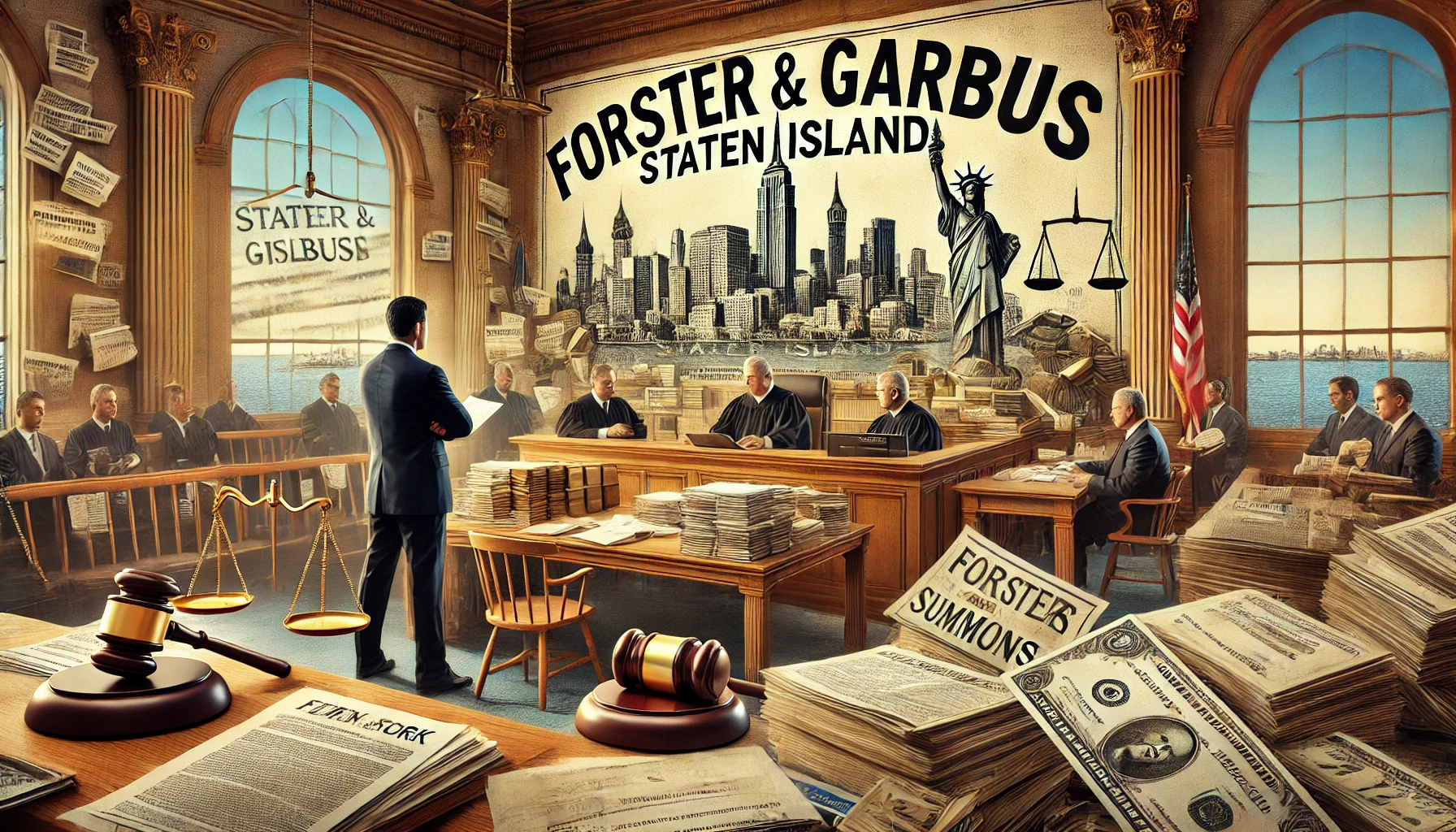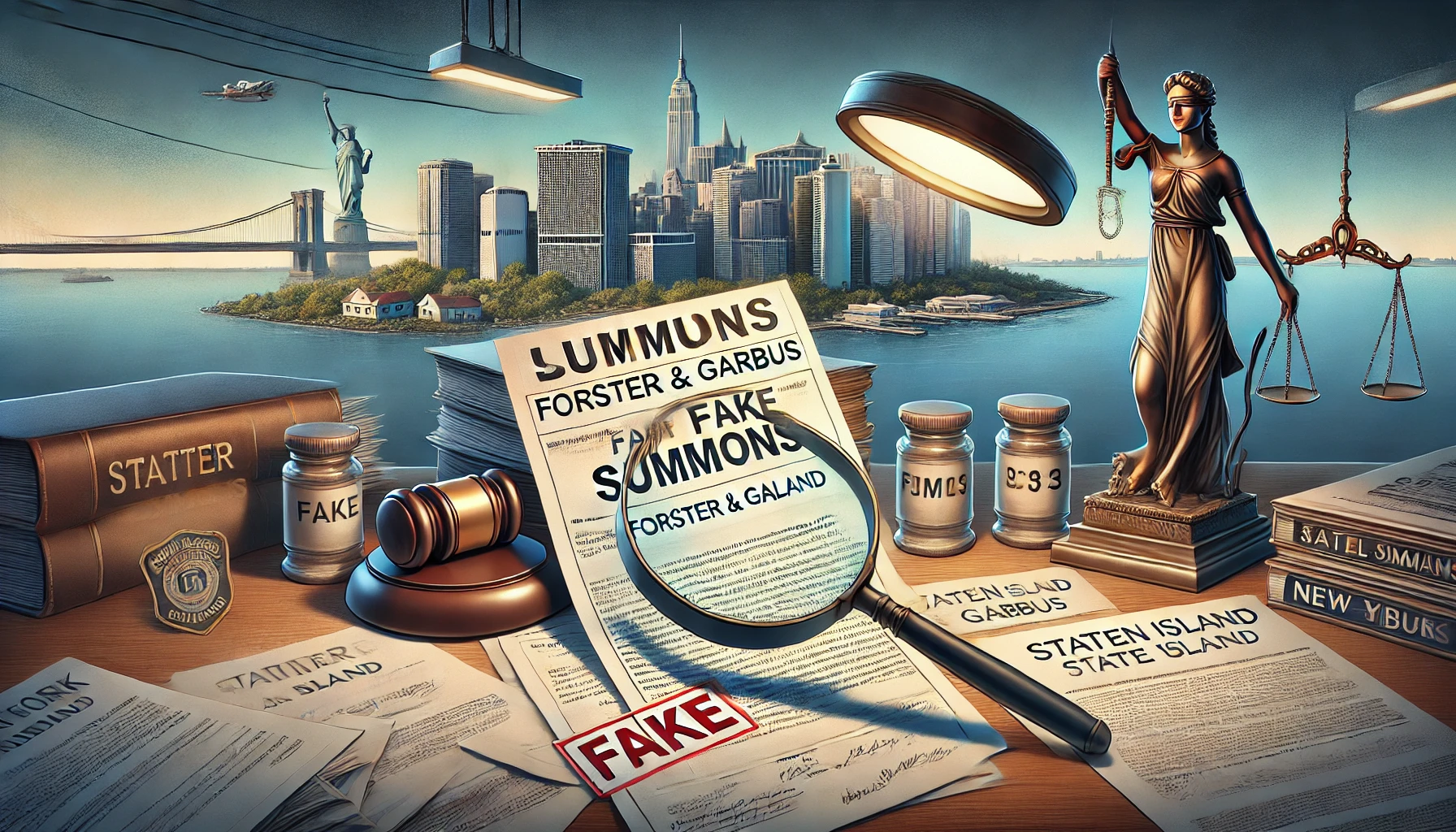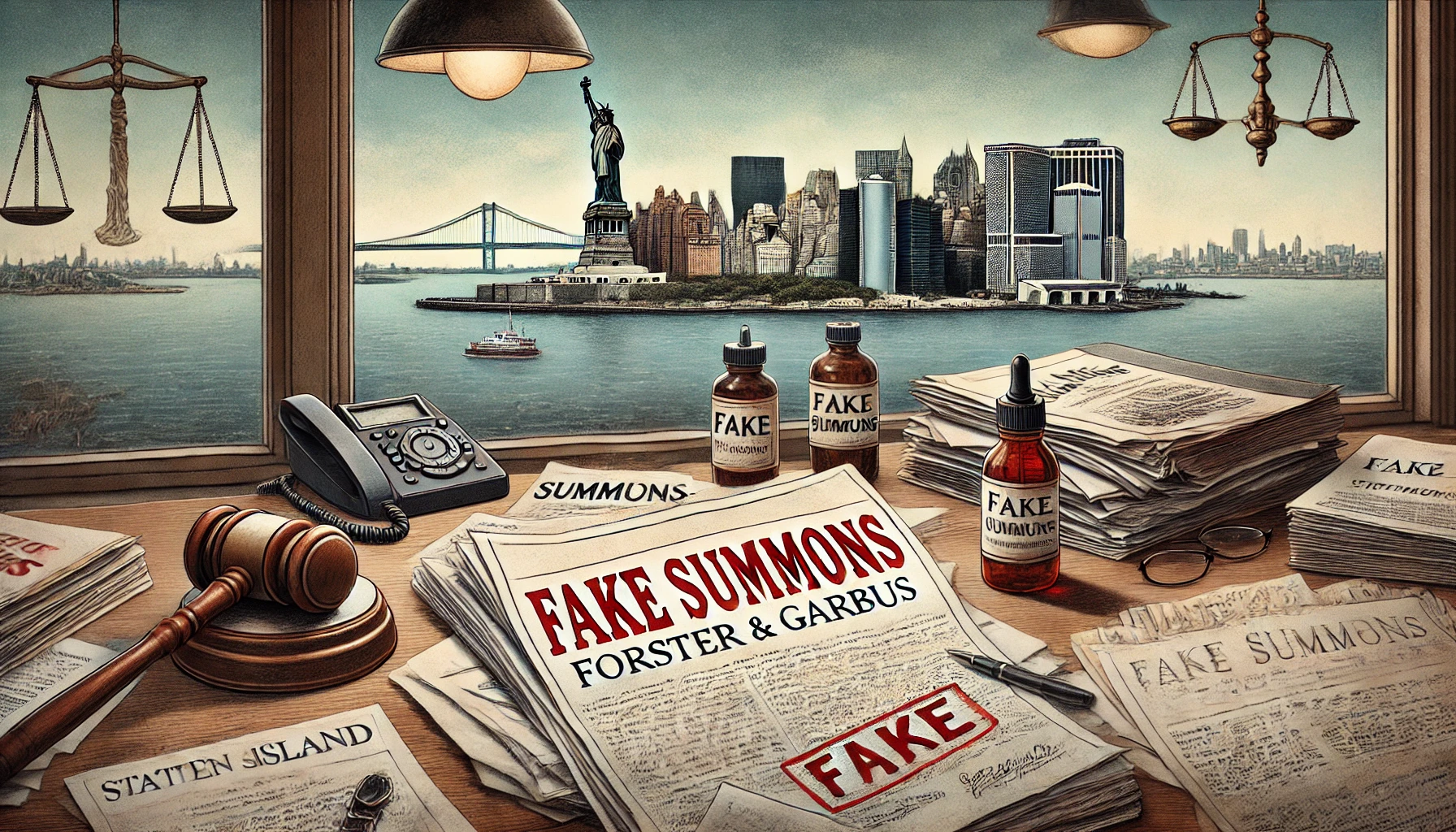Introduction
If you’re a staten island attorney forster and garbus fake summons who has received a summons from Forster & Garbus, a debt collection agency, and you suspect it may be fake or fraudulent, it’s essential to understand your legal rights. Fake summonses are a serious issue in debt collection practices, and unfortunately, individuals are often targeted by deceptive tactics. In such cases, consulting with an experienced Staten Island attorney can help ensure that your rights are protected and that any fraudulent claims are properly handled.
This article explores the issue of fake summonses, specifically in relation to Forster & Garbus, and how a Staten Island attorney can assist in defending your case.
What Is a Fake Summons?
A fake summons is a document that falsely claims to be an official court order, typically designed to deceive the recipient into thinking they are legally obligated to respond or pay a debt. These summonses may appear official but are often issued by debt collectors without the proper legal foundation, leading to consumer confusion and undue stress.
Characteristics of a Fake Summons:
- Lack of court seals, case numbers, or other distinguishing legal marks.
- Requests for immediate payment or personal information.
- Language threatening legal action or arrests if payment isn’t made quickly.
- Documents that come from unknown or questionable sources without proper court oversight.
Debt collectors like Forster & Garbus, known for their aggressive tactics in pursuing unpaid debts, have been involved in allegations of issuing fake summonses to intimidate consumers into paying alleged debts. These fraudulent practices can create major problems for residents in Staten Island and beyond, including unwarranted legal actions and financial strain.
Legal Implications of Fake Summonses
A fake summons is not just a matter of consumer confusion; it is a violation of consumer protection laws. The Fair Debt Collection Practices Act (FDCPA) provides essential protections against deceptive and abusive practices by debt collectors. The FDCPA prohibits practices such as false representations, harassment, and any action that misleads consumers regarding their rights or obligations.
If a debt collector such as Forster & Garbus issues a fake summons, they could be violating federal law. Furthermore, the state of New York offers additional protections under local laws, such as the New York Civil Practice Law and Rules (CPLR), which governs the legal process for serving valid summonses and protecting individuals from improper legal actions.
The Role of a Staten Island Attorney
When you receive a summons that seems suspicious, contacting a Staten Island attorney is the best course of action. Here’s how an attorney can help:
- Evaluating the Summons: An attorney will examine the summons to determine whether it is legitimate or fraudulent. They’ll verify case details, such as court jurisdiction and case numbers, with local court records. If the summons is fake, they will know how to proceed to protect your rights.
- Defending Against Fraudulent Claims: A Staten Island attorney can file a motion to dismiss any fraudulent debt claims. They’ll argue that the summons lacks proper legal foundation, and they can seek a judgment in your favor, freeing you from unnecessary legal stress.
- Consumer Protection Actions: In addition to defending your case, your attorney can file complaints with state and federal regulators such as the Consumer Financial Protection Bureau (CFPB) or the New York State Attorney General’s Office. They will work to hold Forster & Garbus accountable for any illegal practices.
- Filing Counterclaims: If you’ve suffered emotional distress or financial harm due to the fake summons, an attorney can help you pursue damages. The FDCPA allows consumers to seek compensation for violations, and an attorney will guide you through the process of seeking damages for your losses.
Steps to Take If You Receive a Suspected Fake Summons
If you believe you’ve received a fake summons, take the following steps:
- Do Not Ignore the Summons: It’s crucial not to ignore any legal documents, even if they appear fraudulent. Failing to respond to a summons can result in a default judgment, where the court may automatically rule against you.
- Verify the Summons: Check with the court to ensure the case is real. You can contact your local Staten Island court to confirm whether a case number and details match an actual legal proceeding.
- Consult an Attorney: Once you suspect a summons is fake, consult with a Staten Island attorney immediately. They will assess the document, provide guidance on how to proceed, and protect your rights.
- Report the Fraud: If you confirm that the summons is fake, report the issue to regulatory authorities such as the Consumer Financial Protection Bureau (CFPB) and the New York Attorney General’s Office. These agencies investigate fraudulent debt collection practices.
Legal Remedies for Fake Summonses
If you’re the victim of a fake summons, there are several legal remedies available:
- Motion to Dismiss: Your attorney can file a motion to dismiss the case based on the fraudulent summons. Courts have the authority to dismiss cases that lack proper legal grounds, especially when the summons was issued unlawfully.
- Seek Damages: Under the FDCPA, you may be entitled to compensation for damages caused by the fraudulent summons. This could include reimbursement for legal fees, emotional distress, and financial losses related to the fraud.
- Regulatory Action: By reporting the fraudulent practices to authorities, you contribute to holding debt collectors accountable. Regulatory bodies like the CFPB and New York State Attorney General’s Office can investigate and take action against unlawful practices by debt collection agencies.
Conclusion
If you’ve received a fake summons from Forster & Garbus or another debt collection agency, don’t panic. You have legal protections in place, and a skilled staten island attorney forster and garbus fake summons can guide you through the process of defending against fraudulent claims. From verifying the authenticity of the summons to filing complaints and seeking damages, legal experts can help safeguard your rights.
Remember, ignoring a fraudulent summons can have serious consequences, but with the help of an experienced attorney, you can ensure that your case is handled properly. If you suspect you’ve been targeted by a fake summons, reach out to a Staten Island attorney today and take the first step toward protecting your legal and financial future.
FAQs
1. What is a fake summons from Forster & Garbus?
A fake summons is a fraudulent document from a debt collector that pretends to be an official court order, often to intimidate consumers into paying a debt.
2. How can I tell if my summons is fake?
Look for missing court details like case numbers or seals, urgent language, or inconsistencies. Verify with local courts to check its authenticity.
3. What should I do if I think my summons is fake?
Don’t ignore it. Verify its legitimacy with the court, then consult an attorney for advice and action.
4. Can an attorney help with a fake summons?
Yes, an attorney can verify the summons, file motions to dismiss, and protect your rights from fraudulent claims.
5. What protections do I have?
You are protected by the Fair Debt Collection Practices Act (FDCPA), which prohibits fraudulent debt collection tactics, including fake summonses.
Recommended Article:
Delaware Personal Injury Law Explained: Steps to Protect Your Rights
Colorado Divorce Law Explained: Residency, Custody, and Property Division
UTC Legal Services: Simplifying Trust Law and Administration





